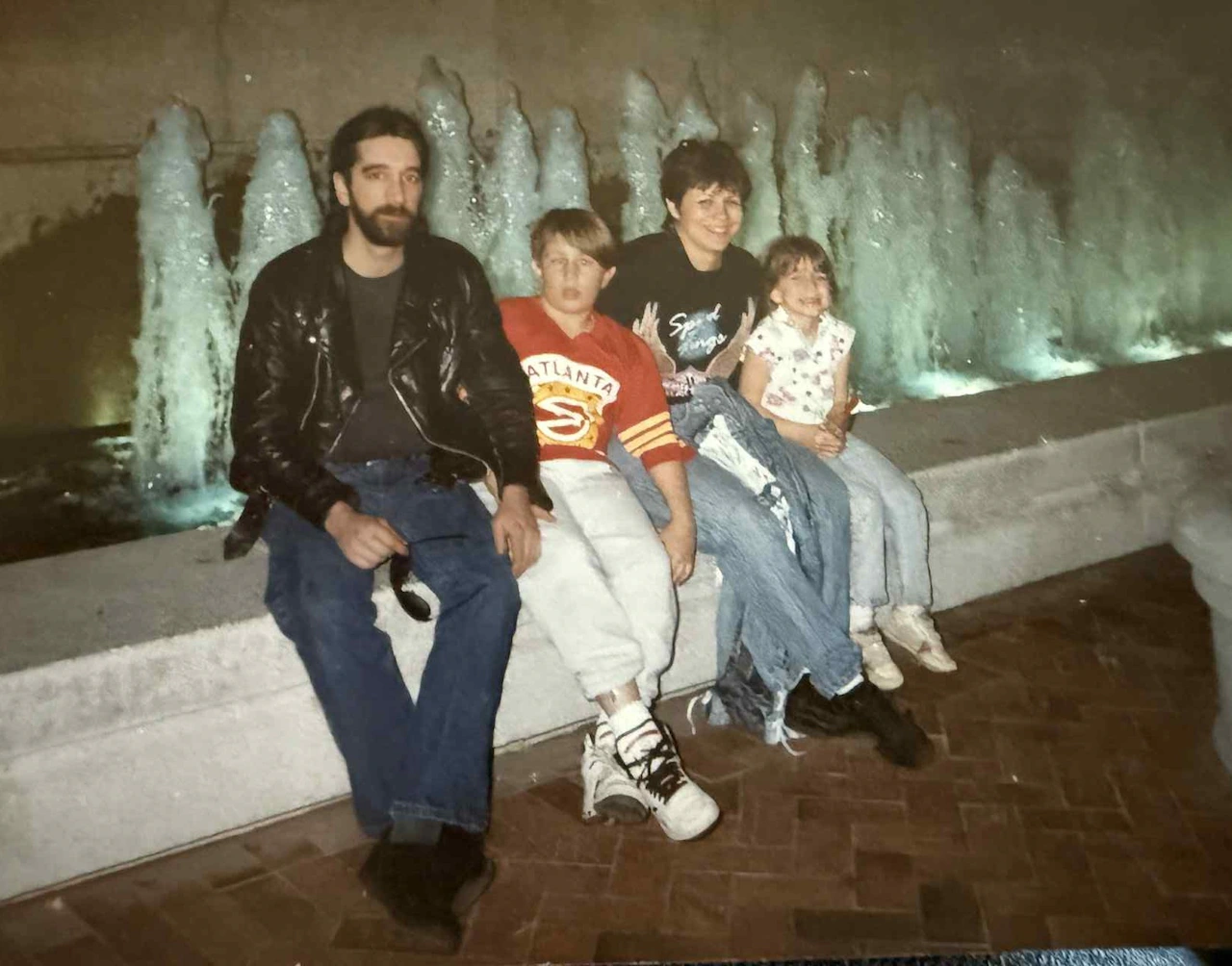
MUSKEGON, MI – Barb VanBogelen realizes she will likely never get most of the roughly $2 million she’s owed from the woman who murdered her husband in 1990.
The widow of nearly 35 years is realistic.
She understands Amy Lee Black, a former juvenile lifer and now a free woman, won’t be able to repay the hefty sum.
But VanBogelen vowed to drain Black of every penny she has.
“I have said since Day 1, ‘If she has a dime and I can take a nickel of it, I’m taking it,” VanBogelen said. “I’m going to make her life hell.”
Black was 16 years old when she and her boyfriend, Jeffrey Abrahamson, killed 34-year-old Dave VanBogelen – a husband and father of two – in rural Muskegon County.
Black was tried as an adult, convicted of first-degree murder and sentenced in 1991 to a mandatory term of life without parole.
Things changed for Black decades later after a U.S. Supreme Court ruling would allow her to receive a lesser sentence.
Black was one of 10 female “juvenile lifers” in Michigan up for resentencing.
A Muskegon County judge reduced Black’s punishment to a term of years in 2021 and ordered her to pay $1.87 million in restitution to the VanBogelen family. She was paroled one year later.
Black, now 51, has paid less than $1,000 since her release, court records show. Jail time is a possible punishment for not complying with the court order but it’s rare, a Muskegon County prosecutor said.
Barb VanBogelen has followed both criminal cases involving her husband’s killers for decades.
She expressed her frustrations with the justice system and thoughts about Black’s repayment efforts in an interview with MLive/Muskegon Chronicle.
VanBogelen briefly choked up when asked about the possibility of her husband’s second killer being released from prison because of a new law.
“(Black and Abrahamson) get their get-out-of-jail-free cards,” she said. “Where is Dave’s get-out-of-the-grave card?”
A gruesome murder and second chance at freedom
The killing happened in the early morning hours on Dec. 7, 1990.
Black and 19-year-old Abrahamson encountered Dave VanBogelen in a Muskegon Heights restaurant. The couple lured VanBogelen into an apartment so they could rob him.
VanBogelen was bludgeoned, repeatedly stabbed, and left on a rural road in Fruitport Township.
Black and Abrahamson were convicted of first-degree murder and armed robbery at trial. Both were sentenced to life in prison without the possibility of parole.
Black sat in a Michigan prison for 21 years before a U.S. Supreme Court ruling gave her the opportunity for freedom. In 2012, the high court ruled that an automatic life sentence was cruel and unusual punishment for those 17 and younger.
Now-retired Muskegon County Circuit Judge Timothy Hicks resentenced Black in August 2021 to 35-60 years, making her immediately eligible for parole.
Hicks ordered Black to pay $1.87 million – a figure determined by an actuary – in restitution to the VanBogelen family.
Black agreed to repay the amount, court records show.
The Michigan Supreme Court has ruled that requiring convicted defendants to pay restitution, even if the original sentence did not include it, does not violate constitutional protections.
Black was granted parole and walked out of prison in September 2022 after 31 years in prison. Upon her release, she was placed on a plan to pay $25 a month toward restitution, court testimony revealed.
With that payment plan, fulfilling the restitution would take about 6,200 years.
Months went by after Black’s release, and Barb VanBogelen still hadn’t received her first restitution check.
She contacted the Muskegon County Prosecutor’s Office for guidance.
Payments go nowhere
There are various mechanisms for a victim to try and enforce the restitution orders, Senior Assistant Prosecutor Heather Bloomquist, who handles juvenile lifer cases, told MLive/Muskegon Chronicle.
A judge can impose jail time or additional fines. However, that is rare because it prevents the victim from being made whole, Bloomquist said.
Another method is through a hearing where prosecutors show a judge the lack of payment a defendant has made.
Black was before Muskegon County Circuit Judge Matthew Kacel in late August for failing to make “genuine efforts” toward restitution. She appeared virtually, without an attorney, from her apartment in southeast Michigan.
“This is a significant amount of restitution and very little has been paid,” Bloomquist said at the Aug. 20 hearing.
Black told Kacel she has not been able to find a job since her release and lives off Supplemental Security Income. She detailed her monthly bills and other finances before telling the judge, “If ever I get a job, I will pay more.”
“I do not have $1 million sitting around in the bank,” Black said.
Kacel said he expects to make payments but reminded her that there are penalties he can enforce if she doesn’t.
“I’m never going to order you … to immediately pay $1.8 million,” Kacel said. “But the law requires to have you continue to pay a reasonable sum based on your income until it’s paid off.”
No action was taken, and instead, the hearing was adjourned for 90 days to see if there’s been any improvement.
Black isn’t the only one responsible for the $1.87 million.
Abrahamson, Black’s accomplice in the killing, is serving his life sentence at the Thumb Correctional Facility in Lapeer.
Abrahamson too will have a shot at freedom after the Michigan Supreme Court ruled that 19- and 20-year-olds who commit first-degree murder cannot automatically be sentenced to life in prison.
A judge can still sentence a defendant to life in prison and Muskegon County prosecutors plan to request the judge keep Abrahamson locked up for life.
Prosecutors will also ask a judge to make Abrahamson liable for the restitution order.
If the request is granted, Black and Abrahamson must pay the full amount until it’s paid off. It doesn’t matter who pays what amount either, Bloomquist said.
The idea of her husband’s killers roaming the streets together freely makes Barb VanBogelen feel helpless, she said.
“You can’t tell me these kids at that age don’t know what could happen to them if they kill somebody,” she said. “Criminals have more rights than victims and their families.”
Debt will likely never ‘go away’
Paying a nearly $2 million debt off is a difficult task for the average person, let alone someone who is readjusting to society after decades of incarceration with a felony record.
During the August proceeding, Black asked the judge how she could make the debt “go away,” telling him she’ll never be able to pay it off.
Black isn’t the first defendant to struggle with restitution payments. In most cases, defendants don’t get close to paying restitution in full, Bloomquist said.
“It’s a really sad reality for our victims,” she said.
Resources are available to victims to help ensure they receive at least a portion of restitution owed.
The Crime Victim Compensation program helps pay out-of-pocket expenses for people who have been harmed as the direct result of a crime. It’s operated through the Michigan Department of Health and Human Services.
The program is considered the payer of last resort, meaning private insurance or other public funds, if available, must be utilized first to become eligible.
Victims can seek compensation for various claims such as psychological counseling and medical expenses. Compensation varies and coverage isn’t guaranteed for every applicant.
Black will appear, likely virtually, in a Muskegon County courtroom in mid-November to update the judge on her repayment efforts. To date, she’s paid $932 toward restitution, court records show.
For now, Barb VanBogelen will keep receiving a $25 check each month. The money is set aside with no real plans of what to do with it.
“Right now, I’m fine with letting it just sit there,” she said. “It’s been put where it needs to be to not dig up demons.”



